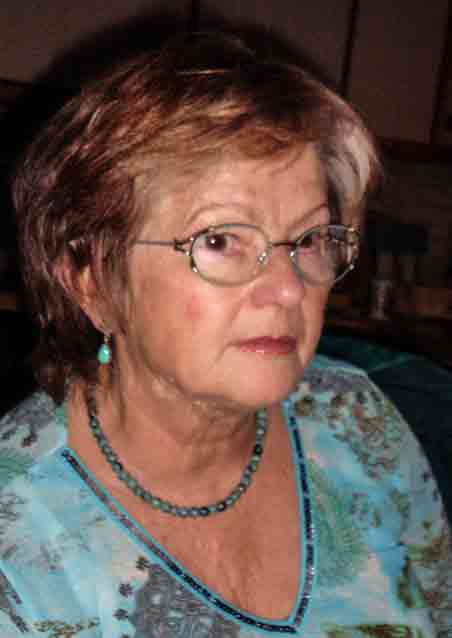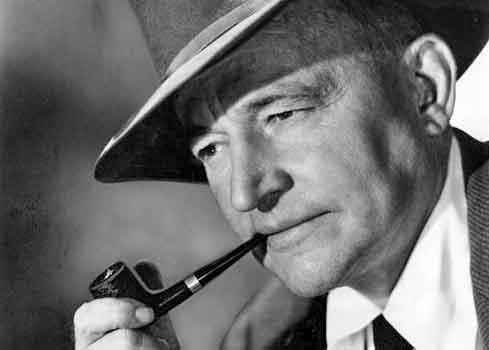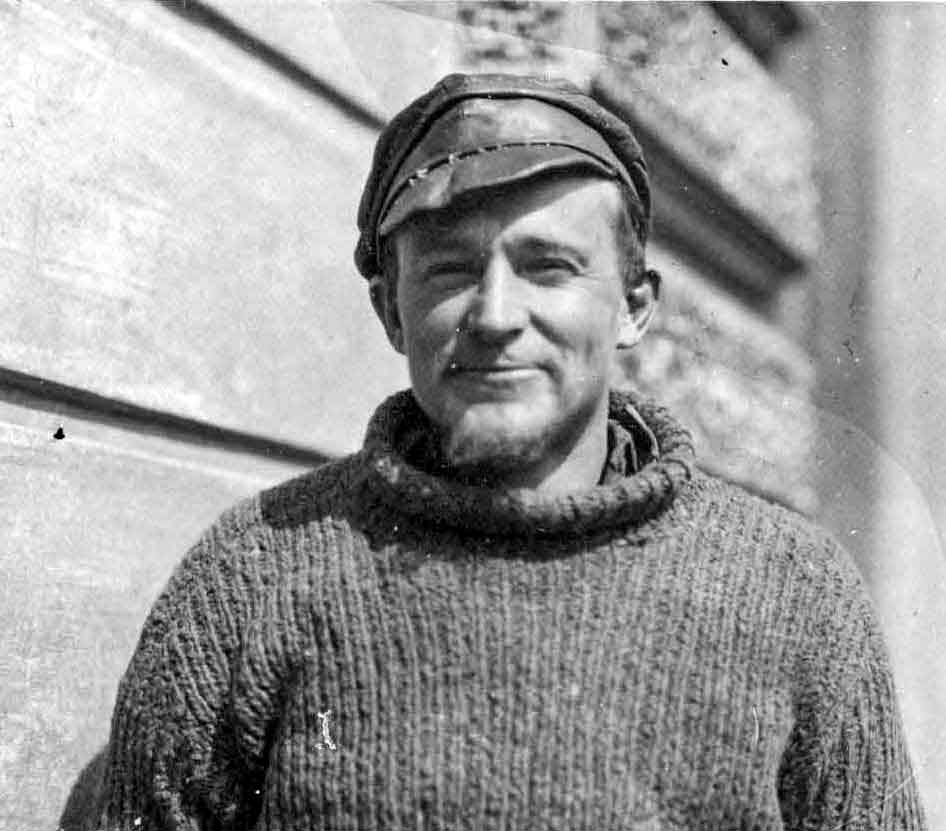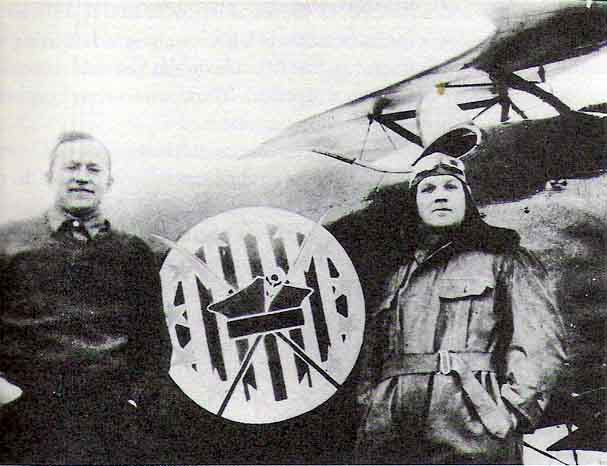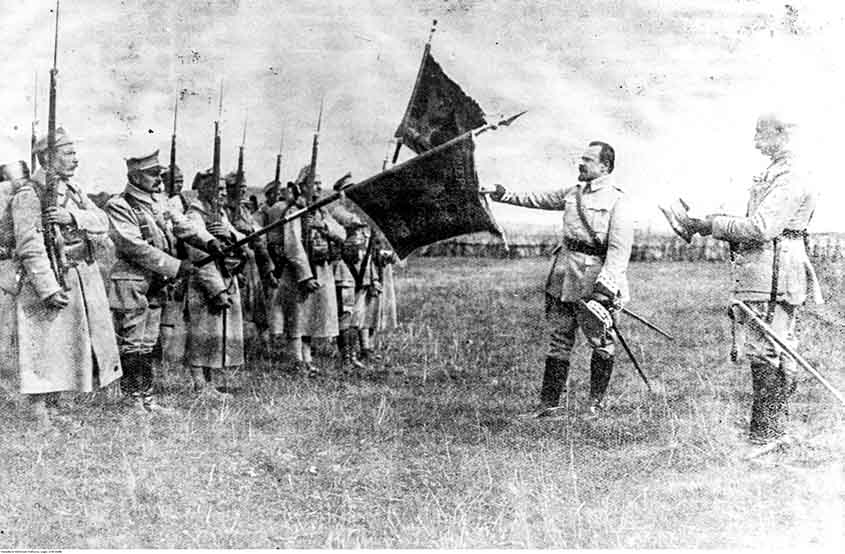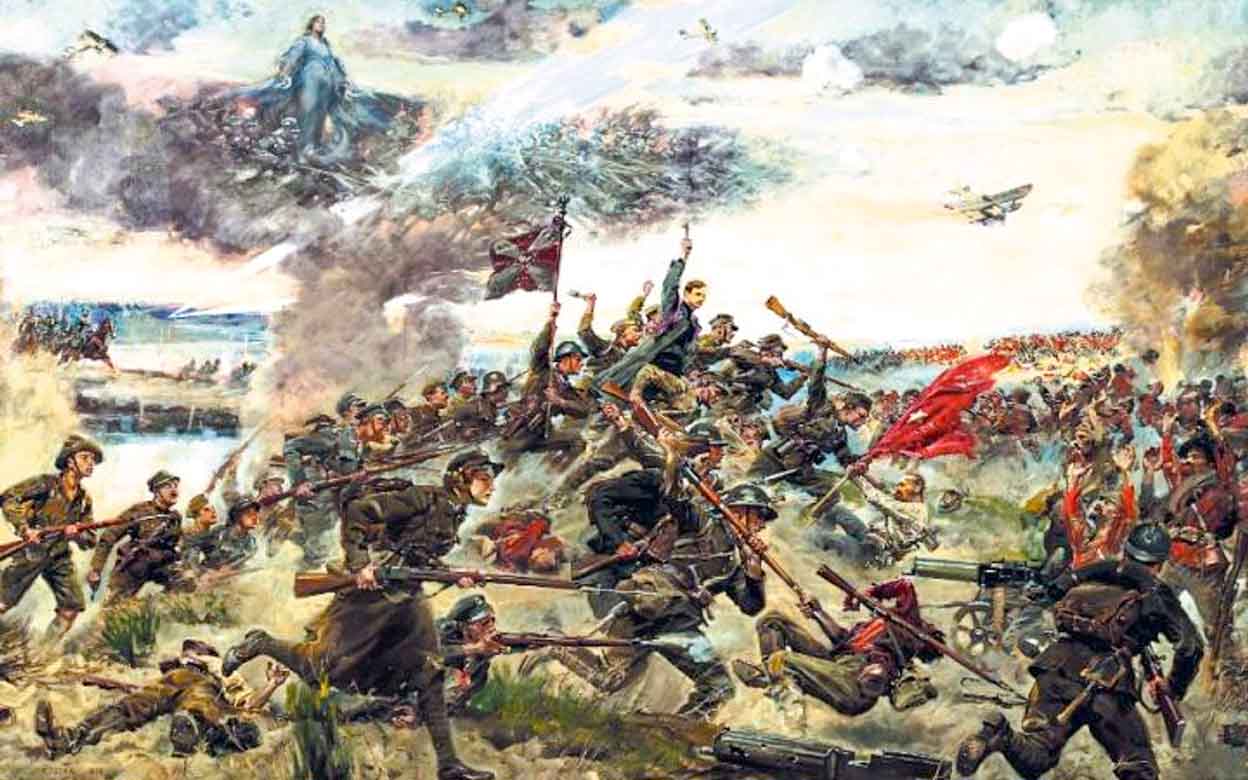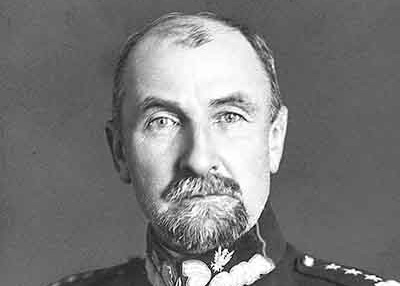Casimir Pulaski is a hero of "two continents," often called the "knight of freedom." His love of freedom connected two distant places on Earth. Regardless of his lack of English proficiency and the cultural differences between the Polish and American nations, he stood for the most precious human values: the love of freedom and the fight to defend it! He is a towering figure in the pantheon of Polish and American history.
This is how the "Polish Biographical Dictionary" describes his appearance:
He was short, thin, and slender, with a quick speech and gait. He was very abstemious both from drinking and from women. His favorite pastimes were practicing shooting with small arms, wrestling with a powerful man, performing various tricks on horseback, and playing cards all night long. Nothing amused him more than skirmishes with Muscovites.
We celebrated the anniversary of his heroic death on October 11, and the following text will be primarily about him.
Biography of Casimir Pulaski
Kazimierz Michał Władysław Wiktor Pułaski, of the Ślepowron coat of arms, was born on March 6, 1745, in Warka-Winiary, the son of Józef Pułaski, the starost of Warka, and Marianna, née Zielińska. Although various birth dates were previously given: 1747 and 1775, a birth record discovered in the 1980s in the baptismal book of the Church of the Holy Cross in Warsaw gives the date as 1745. He attended the parish school in Warka and then the Theatine school in Warsaw.
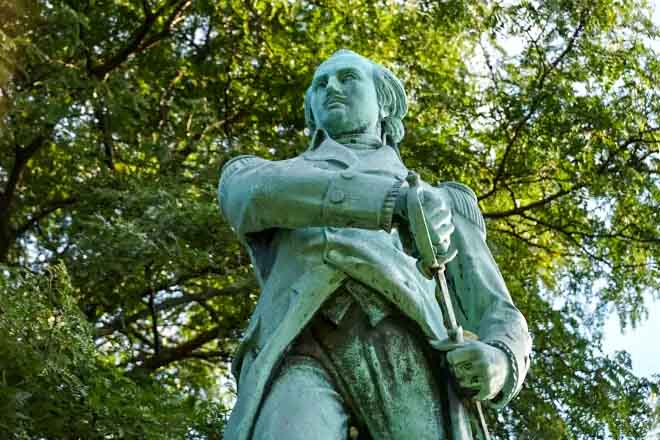
Casimir Pulaski Monument in Milwaukee (Source: Wikipedia)
As a teenager, he served at the court of Prince Charles, ruler of the Duchy of Courland and Semigallia, which was subordinate to the Polish-Lithuanian Commonwealth. In 1763, he saw his first military action when Mitau (now Jelgava in Latvia), the capital of the duchy, was besieged by Russian forces. After this event, Casimir returned from Latvia to Poland, only to participate in the election of Stanisław August Poniatowski the following year, along with his father and two brothers. In the following years, the Pułaski family actively participated in preparations for an armed uprising (confederation) directed against Muscovite influence in the Polish-Lithuanian Commonwealth and Stanisław August Poniatowski, who was subservient to Empress Catherine and cooperating with her.
Against King Poniatowski, a Confederation, now known as the Bar Confederation, was formed in the city of Bar in present-day Ukraine. Its founding act was signed by the then 23-year-old Casimir Pulaski on February 29, 1768. Privy to the preparations for the Confederation, he armed troops in Podolia and Volhynia with his own money. His activities during this period should be assessed in light of the Confederation's program, in which his entire family also actively participated.
Father Józef Pułaski was the creator and marshal of this confederation, his brothers Franciszek and Antoni also actively participated in the preparations for an armed resistance against the Russian threat to the Polish-Lithuanian Commonwealth.
Casimir was one of the leaders of this armed union of Polish nobility from 1768 to 1722. In the summer of 1769, he led a successful campaign in Lithuanian lands and was subsequently elected Marshal of the Łomża Province. At the head of his troops, he fought several successful skirmishes with Muscovite forces.
At the age of just 23, he was promoted to colonel. Even then, he enjoyed considerable esteem at home and abroad, but his true fame came with his daring defense of Jasna Góra against the Russian forces of General Johann von Drewitz. At the turn of 1770/71, Pulaski successfully held off the Muscovite assaults for two weeks, forcing them to abandon the siege of this special place for Poles.
On November 30, 1771, the idea arose among the confederates to organize the kidnapping of King Stanisław August Poniatowski in order to dethrone him, that is, remove him from power, as they considered him a renegade and a tool of Russia, which at the time exerted strong influence in the Polish-Lithuanian Commonwealth. The plan involved taking the king to Jasna Góra and forcing him to sign an act of abdication, which would symbolically throw off the tsarist protectorate, or to join the confederation itself.
The operation proved to be a disgrace. Several conspirators were captured, and those believed to be the ringleaders of the monarch's kidnapping were sentenced to death.
Casimir Pulaski was sentenced to death in absentia in August 1773 for attempted regicide. He defended himself for a long time against charges of attempting to assassinate the monarch, but the Sejm court sentenced the co-founder of the Confederation to confiscation of his property and upheld the death penalty. Ultimately, he was forced to leave the country penniless and branded a regicide. The authorities of no European country would accept him.
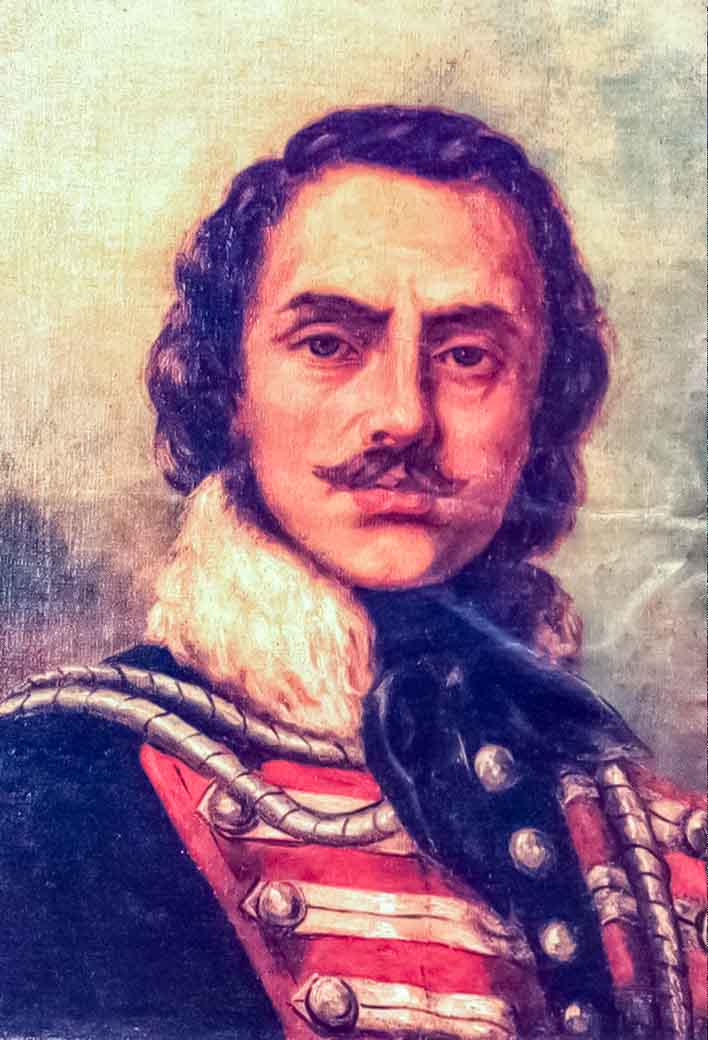
Casimir Pulaski — portrait (Source: Wikipedia)
Pulaski left Poland in 1772 and never returned. He spent the rest of his life in exile. His wandering fate initially led him to Turkey, which was at war with Moscow. After a brief stint in the Turkish army, he ended up in France. There, he met Benjamin Franklin, an American diplomat recruiting capable soldiers in Europe. Franklin, charmed by Pulaski's personality and fighting spirit, sent him to America with a letter of recommendation, enthusiastically praising his abilities. In this letter to George Washington, dated May 29, 1777, Franklin emphasized that Pulaski, a Polish count and officer known throughout Europe for his courage and fighting for his country's freedom against the overwhelming forces of Russia, Austria, and Prussia, "has gained fame throughout Europe for the courage and bravery he has displayed in defending the freedom of his country" and "can be of great use in our service."
Pulaski proved to be a highly capable cavalry officer, introducing certain techniques from European warfare to the American soil.
He reformed the cavalry—he is still called the "Father of the American Cavalry"—and led it into battle against the enemy. From 1777 to 1779, he fought in George Washington's army in the American Revolutionary War.
On September 11, 1777, at the Battle of Brandywine, thanks to his courage and daring cavalry charge (an oblique attack on the front and right wing of the English), he covered the retreat of American forces and saved the life of George Washington, for which he promoted Pulaski to the rank of brigadier general of the American cavalry.
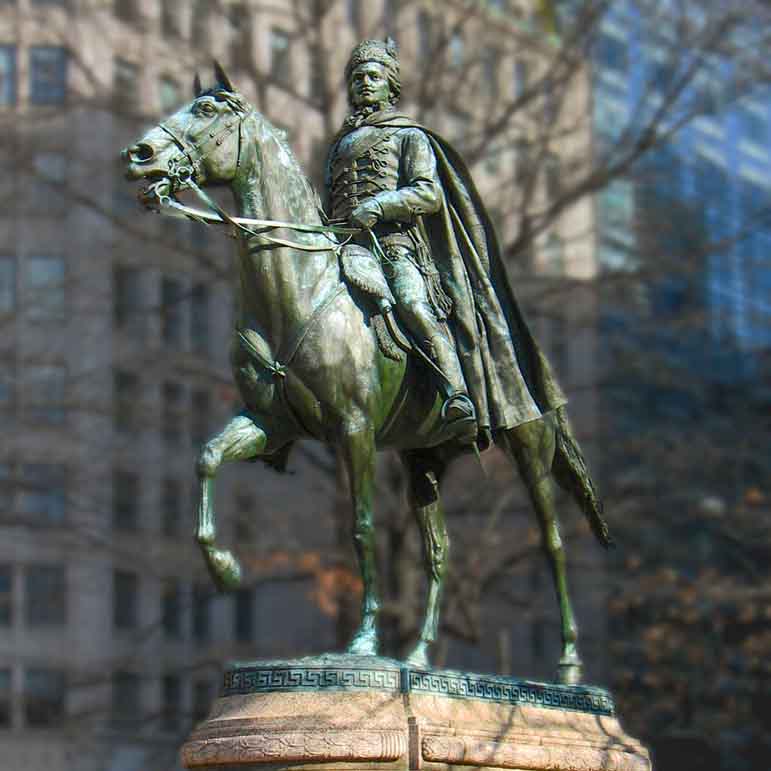
Casimir Pulaski Monument in Washington, D.C. (Source: Wikipedia)
In recognition of General Pulaski's military achievements, by a resolution of Congress of September 15, 1777, he was appointed "commander of the American Light Dragoons with the rank of brigadier general," which meant taking command of the entire cavalry of the Continental Army.
In March 1778 he formed a cavalry legion, at whose command he won a victory over the English at the Battle of Charleston (May 10, 1779).
General Casimir Pulaski died from wounds sustained during the Battle of Savannah on October 11, 1779, at the age of 34. Upon hearing of Pulaski's death, General George Washington (then stationed with his staff at his headquarters in Moore House, West Point) decided that on the day the news arrived (November 17, 1779), the military watchword would be "Pulaski" and the response "Poland."
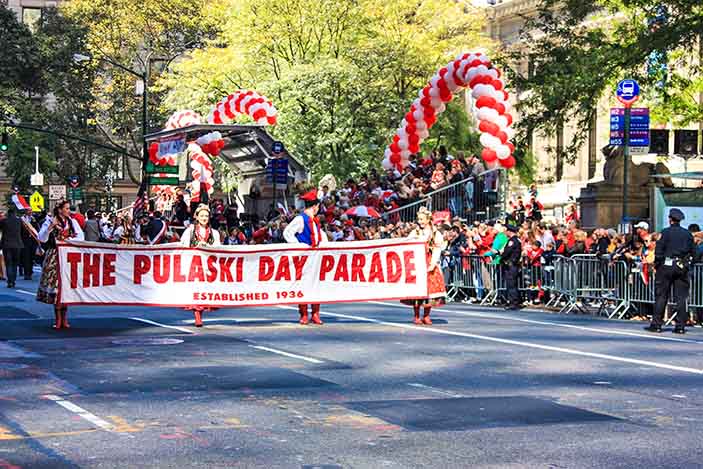
Pulaski Parade, New York City - an annual, major event held on Fifth Avenue in New York City in honor of Casimir Pulaski; held on the first Sunday of October every year since 1937. (Source: Wikipedia)
He was buried on a plantation in Savannah, as indicated by archaeological excavations in 1996, during which a coffin bearing the inscription "Brigadier General Casimir Pulaski" was discovered. A belated funeral service for the remains of General Casimir Pulaski was held in Savannah on October 9, 2005.
An Unexpected Thread
At this point, I'd like to introduce a new thread, one that's a long way from the one presented above, but one closely connected to the Hero of this story and to the shared spirit of both our nations: Poland and America! Nations that passionately and determinedly fight for freedom and human rights, regardless of their location. By analyzing this topic, we can understand how history can unite diverse cultures and nations in the name of the common good.
This article will discuss the American pilot, adventurer, film director, and producer, best known for the first film adaptation of "King Kong" in 1933. After retiring from film, he received an honorary Oscar and is considered a co-creator of the Cinerama film technology. Before that, however, the American pilot fought in Poland in 1920 against the Bolsheviks and initiated the formation of the Kościuszko Squadron.
His name is Merian Cooper. His biography forms the invocation contained in the title of this text: "For Your Freedom and Ours."
The Story of Merian C. Cooper
At Savannah (October 11, 1779), as a result of wounds suffered, in the arms of the great-grandfather of the above-mentioned Merian, Colonel John Cooper, the Polish general Casimir Pulaski died.
It was Merian's great-grandfather, John Cooper, who considered Pulaski a friend, who carried the wounded Pulaski aboard the ship "Wasp" from the battlefield. He personally saw to it that a symbolic funeral was held ten days after the General's death, when the ship docked.
Merian's great-grandfather, John Cooper, who had fought alongside Pulaski for American freedom, swore an oath over the body of the Polish General that he would one day repay this debt of honor. This message was passed down through the generations in the Cooper family, and the memory of the heroic Pole who died for the United States became Merian's testament and shaped his entire life. He resolved to repay this debt of gratitude to Poland.
His path to success was complicated. After the end of World War I, Merian found himself in Paris and approached the head of the Polish military mission, General Tadeusz Rozwadowski, who offered to serve Poland, against which the massive Red Army was marching. Merian was an airman. Officers in this field were in dire need, so in consultation with General Rozwadowski, he traveled to Warsaw, where he renewed his offer directly to Chief of State Józef Piłsudski, who reluctantly accepted, reportedly stating that "we do not need mercenaries." However, after a brief hesitation, after Cooper uttered the famous words: "Gen. Pułaski gave his life for my country, therefore, my family considers my service to Poland as it fights for freedom a duty," he convinced the Marshal.
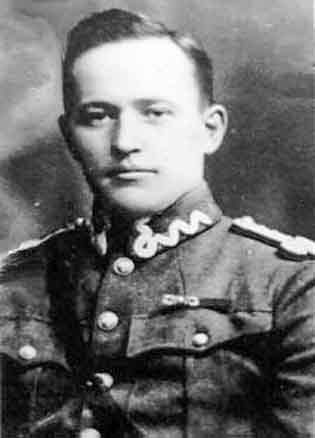
Merian C. Cooper in a Polish pilot's uniform (Source: Wikipedia)
The year was 1920. A massive Soviet army stood on the threshold of the Polish-Lithuanian Commonwealth. Initially, it achieved victories on all fronts, and the commander-in-chief of the Western Front, Mikhail Tukhachevsky—known as the Soviet Bonaparte—proclaimed: "Over the corpse of White Poland into the heart of Europe."
During the attack of the Polish division on the Soviets, American soldiers, including Merian Cooper, attacked the enemy from the rear and used machine gun fire to crush the Bolsheviks, especially Budyonny's Cavalry Army, harassing them with bombing raids and inflicting serious losses in battles, for example, near Lviv.
The heroism of the American pilots and of Merian, grandson of John Cooper, who 141 years ago carried Pulaski, wounded on the battlefield, aboard the ship "Wasp" is part of the victory of the Battle of Warsaw and the extraordinary intertwining of the history of Poland and America.
These countries share a significant trait: they both value freedom and peace. This is precisely why, in the 20th century, the Polish and American nations fought together, arms in hand, in military uniforms, for these values, which are so deeply important to humanity.
Long live Poland! Long live America! Long live the Polish-American alliance!
Translation from Polish by Andrew Wozniewicz.



